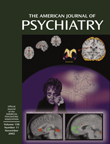Liability for the Psychiatrist Expert Witness
Abstract
OBJECTIVE: An increasing number of general psychiatrists are acting as expert witnesses in the legal system. The purpose of this article is to help psychiatrists who are interested in doing forensic work by informing them of the risks entailed. METHOD: The author reviews the medical and legal literature about expert witness immunity. RESULTS: The author explains the traditional concept of expert witness immunity and shows how a variety of factors have led to the erosion of this immunity. These factors include the proliferation of experts, the inadequacy of traditional safeguards of potential prosecution for perjury and cross-examination, the growth of attorney malpractice, the lack of protection of the injured party from unscrupulous witnesses, and the ineffectiveness of Daubert v. Merrell Dow Pharmaceuticals. Examples are given of how expert witnesses are being held accountable by professional associations and state medical boards and through tort liability. CONCLUSIONS: The author provides risk-management strategies and guidelines for psychiatrists who are considering engaging in forensic work.



